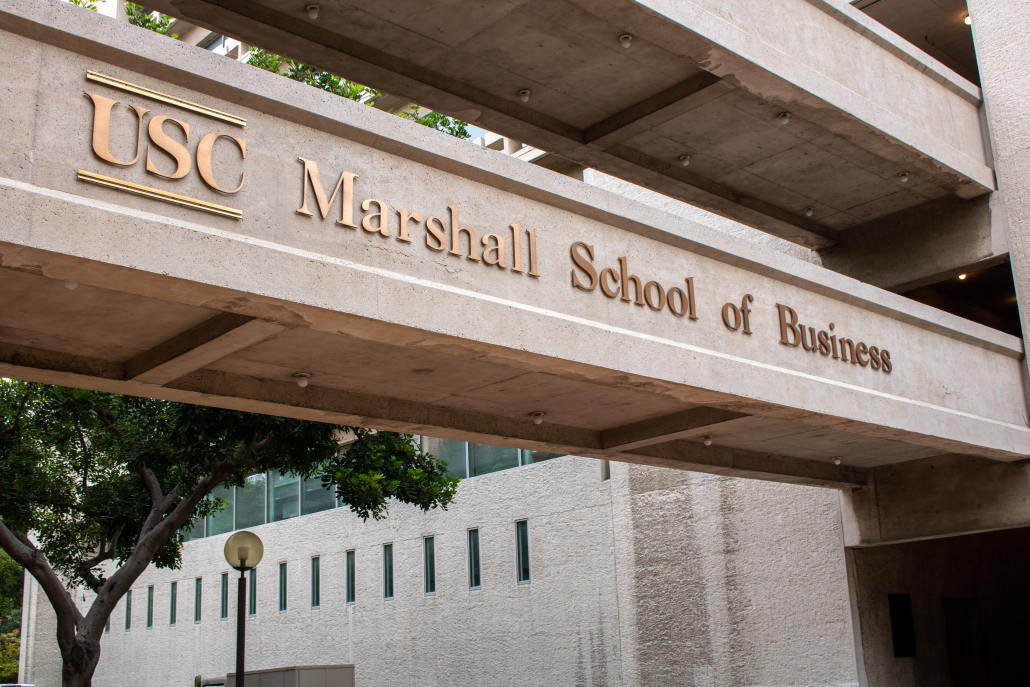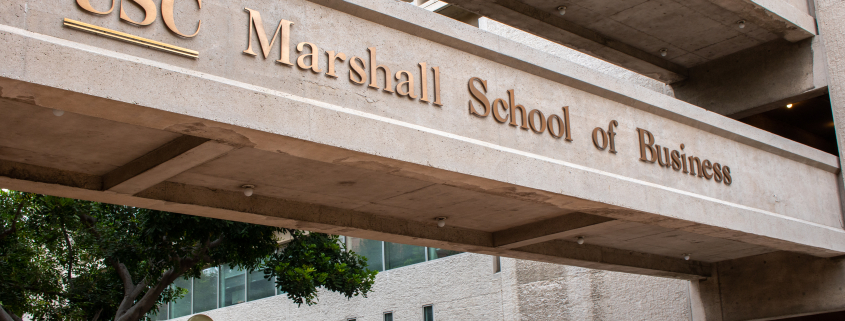New degree to explore intersection between AI, business

The Marshall School of Business and Viterbi School of Engineering will offer a new major beginning Fall 2023, which will allow students to explore the intersection between business and artificial intelligence.
The new program, titled Artificial Intelligence for Business, will be offered under Marshall but will incorporate coursework from both schools. The schools jointly announced the program in early September.
Kimon Drakopoulos, assistant professor in data sciences and operations in Marshall, is expected to be the inaugural director of the program with Yolanda Gil, director of New Initiatives in AI and Data Science and research professor in computer science in Viterbi, as co-director.
In an article published by Marshall, Gil commented on the groundbreaking educational opportunities the program will offer and how it aims to prepare the next generation of leaders in a rapidly changing technological world.
“This is a pioneering and forward-looking interdisciplinary program. To our knowledge, it is the first in the world of its kind at this important intersection of AI and Business,” Gil said. “We will empower business and organizational leaders to understand the possibilities, as well as the limitations, of AI technologies and to help them better understand the people they serve, predict trends, and improve decision-making processes.”
Evelyn Engen, a junior majoring in business administration, said some students including herself were too far in their current program to change, but that she looks forward to the opportunities it will offer new students.
“I think it’s really cool. Personally, I wish I knew about it, because maybe it’s something that would have piqued my interest,” Engen said. “It feels like no one’s going to really bat an eye at it, especially the students who are already so far down the line, like me as a junior, who already completed most of the coursework [for their major] … I feel like for the kids that are applying, [it] absolutely [will be sought after], since AI is something so fresh and not talked about enough.”
University staff has expressed excitement about what this means for USC as an institution that lends itself to exploring the intersection between fields. In late September, Marshall announced the updated Business of Cinematic Arts program. Dean of Viterbi Yannis C. Yortsos said in an interview with the Daily Trojan that he felt USC was the perfect fit for the new Artificial Intelligence for Business major, because of the University’s status as a hub for interdisciplinary studies.
“USC is actually ideally suited,” Yortsos said. “USC has about 20-plus schools. You have cinema, law, pharmacy, you name it … No university that I’m aware of has this multiplicity of different disciplines, which for a long time have been growing, not isolated, but in their own silos in some sense. However, I think you have here the opportunity to create all these joint interdisciplinary efforts … I think that’s really what, ideally, one should aim at.”
Yortsos said the new AI for Business program will feature a wide variety of courses, ranging from cognitive psychology and machine learning to marketing, with the intent of creating the next generation of business leaders with an interest in the technological sphere.
“[The program] is essentially creating a new breed of professionals who have a very strong quantitative background and are interested in business,” Yortsos said. “This is for students who want to have not only the inclination, but also the preference to have this combined dual identity.”
Drakopoulos, in the Marshall article, said the current challenge for AI is in its application, but that USC has the means to create this new generation of leaders.
“We will be one of only a handful of universities around the globe where students have the opportunity to develop their technical, business and leadership skills to pursue careers in one of the fastest-growing parts of the tech sector,” Drakopoulos said.
Engen said the new joint program was right at home at USC and that she looks forward to more collaborations between schools, citing a friend who ultimately chose USC because it offered a specific program he wanted.
“[The University] also has a coding and business major,” Engen said. “I had a friend who was transferring from a prestigious community college and he was looking to go to an elite school and he was looking at Cal, which is his dream school, but they didn’t offer the dual major of coding and business, but we did at USC, and that’s why he chose to go there.”
The need to study AI and business together is something that Yortsos said has come with the two previously separate fields becoming entwined, speaking to the importance of how AI can redefine higher education.
“There is a convergence of areas that in the past were siloed but now I think they’re converging,” Yortsos said. “If you encouraged students to take a course or two in data science, [students] might understand why this is an important area. It may or may very well be part of the future of higher education.”

